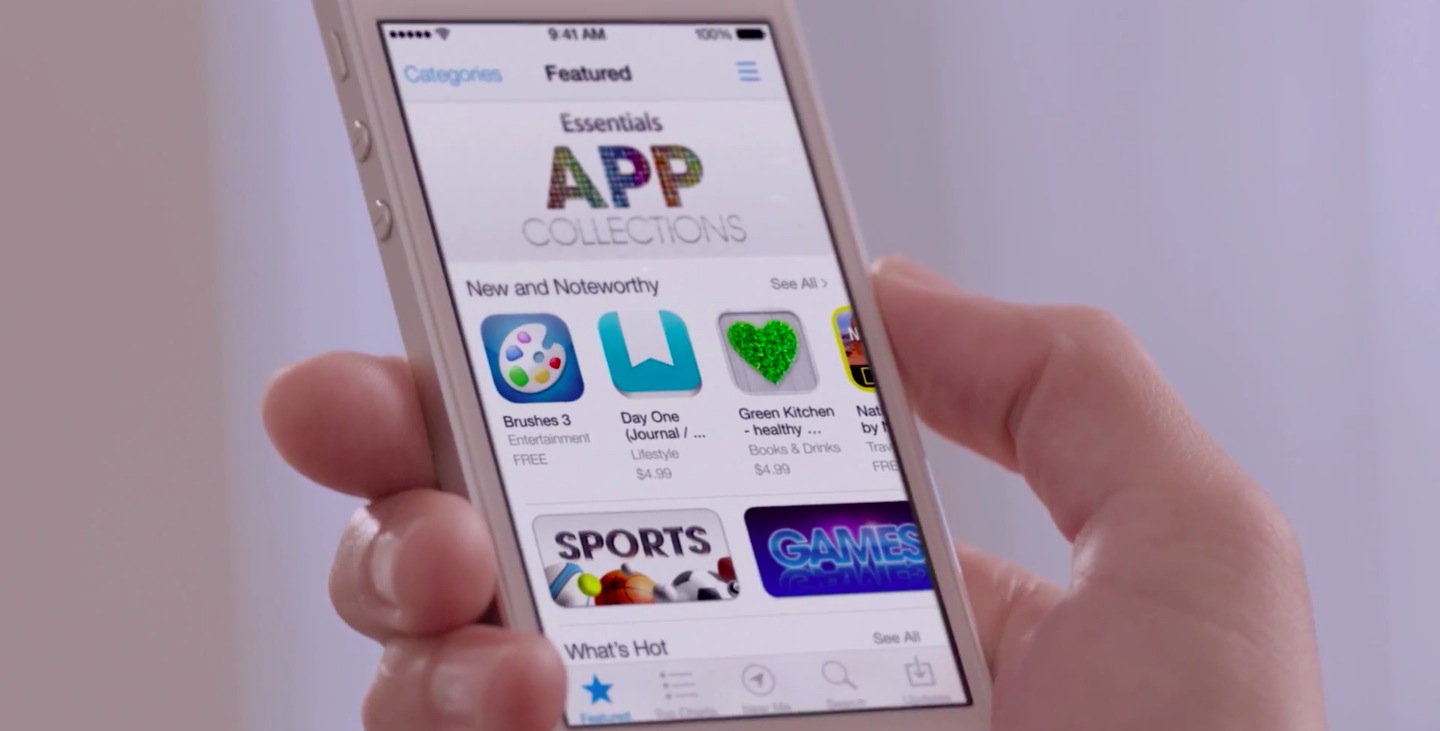Apple has just announced via a press release this morning that customers have spent north of $10 billion in the App Store in 2013, including over an astounding $1 billion in sales in December alone.
It was the best year for the App Store business thus far. The more than $10 billion in 2013 revenue should be music to developers’ ears as Apple’s platform continues to lead in terms of user engagement, stickiness, profitability and other metrics that matter.
And how much money did Apple pay to its “incredible developers,” as the company put it, since the App Store’s inception nearly seven years ago? Fifteen billion dollars (not a typo) – and that’s after its customary 30 percent cut!
The company said developers really took advantage of the new iOS 7 APIs to overhaul their apps and mentioned successful App Store developers such as Evernote, Yahoo, Pinterest and a few others. The company also cast spotlight on some surprise 2013 hits such as Ellen DeGeneres’ Heads Up and hit games from international developers like Clumsy Ninja and Candy Crush Saga, which reached half a billion downloads in just a year…
The press release is right below.
CUPERTINO, California―January 7, 2014―Apple today announced that customers spent over $10 billion on the App Store in 2013, including over $1 billion in December alone. App Store customers downloaded almost three billion apps in December making it the most successful month in App Store history. Apple’s incredible developers have now earned $15 billion on the App Store.
“We’d like to thank our customers for making 2013 the best year ever for the App Store,” said Eddy Cue, Apple’s senior vice president of Internet Software and Services. “The lineup of apps for the holiday season was astonishing and we look forward to seeing what developers create in 2014.”
With the introduction of iOS 7, developers were able to create stunning apps that took advantage of the redesigned user interface and the more than 200 new features and APIs.
Developers such as Evernote, Yahoo!, AirBnB, OpenTable, Tumblr, Pinterest and American Airlines re-imagined the user experience, bringing content to the forefront while increasing the overall efficiency and performance of their apps.
2013 saw surprise hits like Ellen DeGeneres’ Heads Up, ProtoGeo’s Moves, Simon Filip’s Afterlight and Kevin Ng’s Impossible Road. Many of the year’s biggest successes like Candy Crush Saga, Puzzles & Dragons, Minecraft, QuizUp and Clumsy Ninja were created by international developers, while Duolingo (United States), Simogo (Sweden), Frogmind (UK), Plain Vanilla Corp (Iceland), Atypical Games (Romania), Lemonista (China), BASE (Japan) and Savage Interactive (Australia) emerged as developers to watch in 2014.
Apple’s mobile application store is now home to over a million apps for iOS devices, half of which specifically tailored to the iPad’s bigger screen. Having opened for business nearly seven years ago, the App Store now operates in 155 countries around the world.
Despite this milestone – $10 billions in app revenue in twelve months translates to about $900 million in average monthly revenue – I’m pretty sure someone, somewhere is figuring out a way to spin this into another “Apple is doomed” story.
Microsoft, for example, made a big fuss of the fact that Windows Phone now outsells the iPhone in 24 countries, according to TechRadar.
But what Microsoft’s director of communications Christopher Flores “forgot” to mention was these were emerging markets in the sub-$400 category. Apple’s iPhone does not compete at all in that price range because the company does not have an off-contract handset priced bellow $400.
Also, Apple’s release pretty much puts analyst Gene Munster to shame, who last night wrote in a note to clients that “apps are no longer a point of differentiation” for Apple because “the app ecosystem has transitioned to where it no longer matters how many apps each OS has, but rather the satisfaction the user gets out of them”.
Correct me if I’m wrong, but I was under the impression that Apple users have been consistently more satisfied with the polish and quality of iOS apps compared to their Android counterparts.
Besides, wasn’t what Munster said always the case? Quality over quantity?
It doesn’t mattered how many apps these stores have as most folks just need a few dozen most commonly used apps, anyway.
Thoughts?
